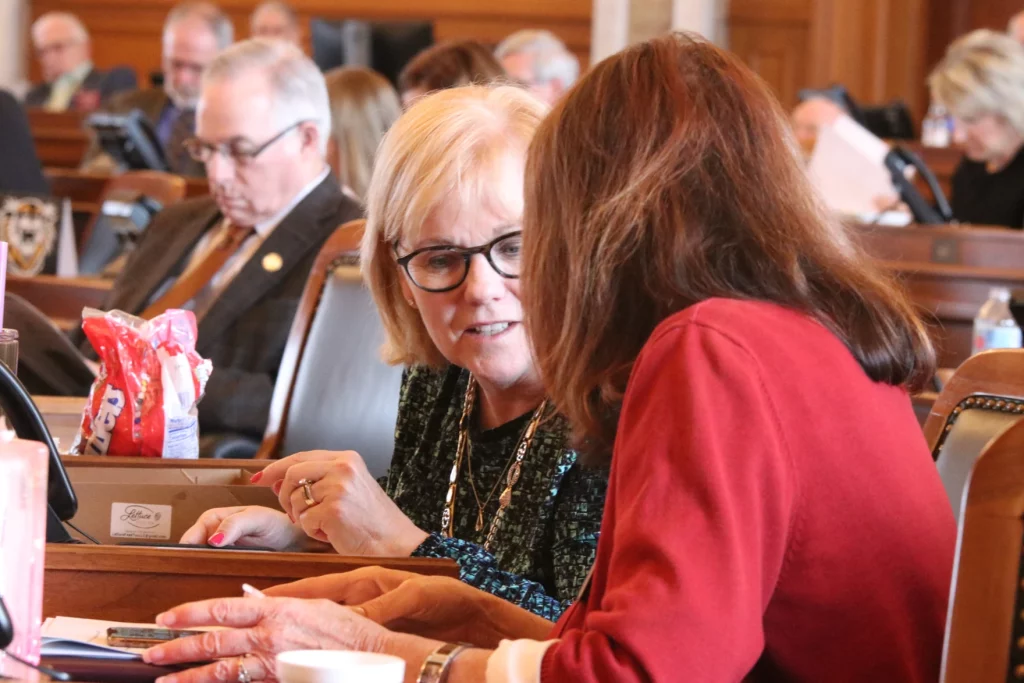Topeka, KS — Kansas foster parents could soon have stronger protections against discrimination and mistreatment as lawmakers push forward with a law promising new rights to them and the children they take in.
The legislation promises foster parents training, timely payments and protections against discrimination based on race, religion, gender or marital status.
For children, the bill mandates comfortable placements, visits with their biological families and as few moves as possible.
Kansas foster care agencies already try to do these things, and no social worker in the state will be surprised to learn that kids want to visit their families. The legislation seems mundane and ceremonial, but states who already have the protections have a practical effect.
“The foster parent Bill of Rights is a document that was passed into law, so it’s not a choice that we follow it. It’s the law,” said Kristi Cundiff, founder and CEO of the Indiana Foster and Adoptive Parents Resource and Advocacy group.
The Indiana legislature already passed a similar law and it has made a difference, she said.
Indiana foster parents had similar complaints that Kansas foster parents about not being notified of meetings, feeling unprepared and being ignored. The Kansas Office of the Child Advocate, an independent monitor to foster care, fielded hundreds of complaints last year, everything from rude social workers to being retaliated against for complaining.
Cundiff said laying out what rights parents had helped families better manage the system.
She said she still fields complaints from foster parents, but now she can direct families to the bill of rights to see what should have been done. She often tells families to print out the bill and pin it to the refrigerator so it is accessible.
In California, a foster parents’ bill of rights brought more of the same change. Families and children confused by the system or those who felt taken advantage of now had one place to go to see what should be happening.
Foster care is complex and having one place where all the rights are listed helps parents, supporters of the bill say, even if those rights already existed.
Laura Heintz, CEO at Stanford Sierra Youth and Families — a foster family agency that supports homes in California — said leaving parents out of the loop isn’t always malicious. High caseloads and busy schedules sometimes mean caseworkers might hinder communication.
Heintz said it sometimes feels as if the bills of rights lack the teeth to bring the change they promised if someone’s right is violated in California, it isn’t always clear what agency is supposed to enforce that provision.
There are ombudsman offices, state licensing boards and the court system, but Heintz said legal action should be the last resort.
Rep. Susan Concannon, chair of the Statehouse committee that advanced the bill, said Kansans can rely on legal action to give the bill some enforcement. But the state has an array of other places where parents can complain, including the child advocate’s office, lawmakers or the Department for Children and Families.
Some Kansas lawmakers worry that the rights would allow kids to do things that might harm themselves. For example, one provision gives kids the right to make and get phone calls. That could theoretically be used to buy drugs, but the rights only apply when in the best interest of the child, Concannon said.
She said the bill, named for former state Rep. Gail Finney, has not met much opposition and it should pass the Kansas House soon.
“The Senate is expecting it,” she said.
Blaise Mesa reports on criminal justice and social services for the Kansas News Service in Topeka. You can follow him on Twitter @Blaise_Mesa or email him at blaise@kcur.org.
The Kansas News Service is a collaboration of KCUR, Kansas Public Radio, KMUW and High Plains Public Radio focused on health, the social determinants of health and their connection to public policy.
Kansas News Service stories and photos may be republished by news media at no cost with proper attribution and a link to ksnewsservice.org.













